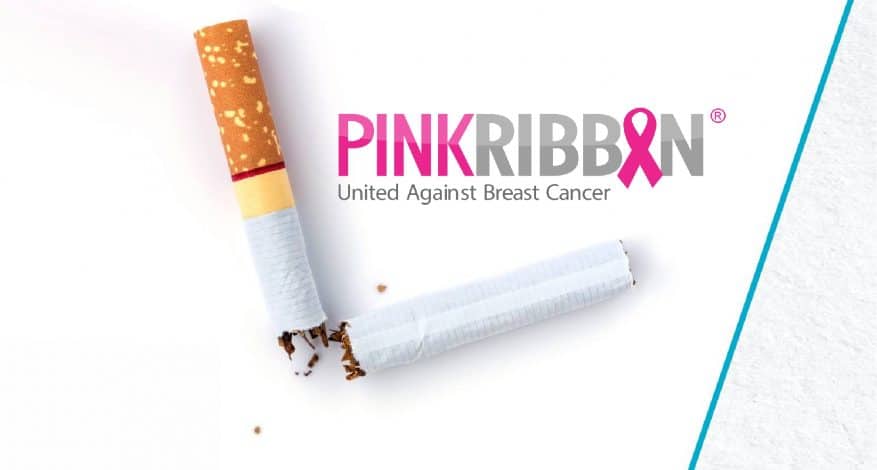According to World Health Organization (WHO), breast cancer is the most common type of cancer and the leading cause of breast-related death among women worldwide, and only in Pakistan, it causes 40,000 deaths annually. There are many factors that increase its risk and smoking is one of them. Rather, it is linked to a higher risk of breast cancer in some people as both women. We cannot change certain breast cancer risk factors such as genetics or age, but they can change others, such as smoking.
Although smoking is not a direct cause of breast cancer but the certain chemicals in tobacco products may lead to uncontrolled cell growth within a person’s body.
It was revealed by a study in 2017 that smoking is associated with a significantly increased risk of breast cancer in certain people:
• Those who started smoking in adolescence, or by the age of 17
• Those with a family history of breast cancer, who started smoking at any time in their lives.
• People who have been smoking for at least 10 years.
• People who smoke more than 5 cigarettes per day.
• Women who are BRCA2 gene mutation-positive and are bearing a child
Positivity statistics from the same study revealed that:
• People who smoked at some point in their lives were 14 % more likely to develop breast cancer than those who have never smoked
• People who started smoking before age 17 had a 24% increased risk of developing breast cancer.
• Smoking for over 10 years increased the risk of developing breast cancer by 21%
• For women with a family history of breast cancer, their risk for breast cancer was highest if they started smoking by age 20 (56%).
Smoking can also complicate breast cancer treatment. A 2020 study revealed that smoking during radiation treatment can cause:
• A poor response rate to treatment
• Poorer 2-year survival rates
• Recurrence of cancer
• A possible increase in cardiovascular events such as heart attack, stroke, or congestive heart failure
The study mentions that people who smoke still experienced a higher risk of major complications, such as difficulty healing after surgery and after breast reconstruction, even if they did not receive radiation therapy.
In a nutshell, smoking in any part of your life does not only increase the risk of lungs cancer but also breast cancer which is very fatal. Quitting smoking is always a better option than any other treatment or precaution.
Although smoking is not a direct cause of breast cancer but the certain chemicals in tobacco products may lead to uncontrolled cell growth within a person’s body.
It was revealed by a study in 2017 that smoking is associated with a significantly increased risk of breast cancer in certain people:
• Those who started smoking in adolescence, or by the age of 17
• Those with a family history of breast cancer, who started smoking at any time in their lives.
• People who have been smoking for at least 10 years.
• People who smoke more than 5 cigarettes per day.
• Women who are BRCA2 gene mutation-positive and are bearing a child
Positivity statistics from the same study revealed that:
• People who smoked at some point in their lives were 14 % more likely to develop breast cancer than those who have never smoked
• People who started smoking before age 17 had a 24% increased risk of developing breast cancer.
• Smoking for over 10 years increased the risk of developing breast cancer by 21%
• For women with a family history of breast cancer, their risk for breast cancer was highest if they started smoking by age 20 (56%).
Smoking can also complicate breast cancer treatment. A 2020 study revealed that smoking during radiation treatment can cause:
• A poor response rate to treatment
• Poorer 2-year survival rates
• Recurrence of cancer
• A possible increase in cardiovascular events such as heart attack, stroke, or congestive heart failure
The study mentions that people who smoke still experienced a higher risk of major complications, such as difficulty healing after surgery and after breast reconstruction, even if they did not receive radiation therapy.
In a nutshell, smoking in any part of your life does not only increase the risk of lungs cancer but also breast cancer which is very fatal. Quitting smoking is always a better option than any other treatment or precaution.






